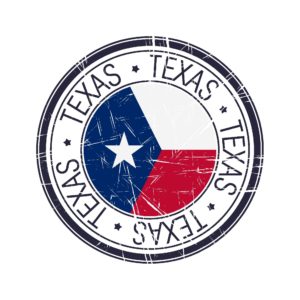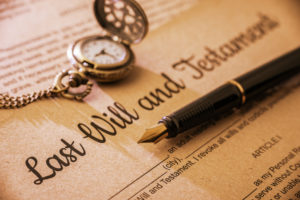Delaware Wills vs. Trusts
Estate planning in Delaware can be straightforward with proper guidance. The First State provides several distinctive advantages, including highly effective asset protection trusts, complete absence of state-level estate and inheritance taxation, and expedited probate procedures for estates valued under $30,000. Given Delaware’s sophisticated trust legislation and exceptional protections against creditors, knowing whether a will or trust better suits your situation is essential. Making informed estate planning decisions helps protect your family from unnecessary expenses, legal complications, and delays while ensuring your assets are distributed according to your wishes.
Table of Contents
US Map For The Different Will and Trust Requirements by State
Interested in other state’s law regarding wills and trusts? Click the ABOVE state you want to be taken to.
Delaware Will Requirements
A Delaware Last Will and Testament should include:
- Age and Capacity: Testator must be “of sound and disposing mind and memory” and at least 18 years old
- Format: Must be in writing
- Signature: Must be signed by the testator or by someone else at the testator’s direction and in their presence
- Witnesses: Must be attested by two or more credible witnesses who sign in the testator’s presence
Witness Requirements
For Delaware wills:
- Any person generally competent to be a witness may act as a witness to a Delaware will
- Disinterested witnesses are generally preferable, but a Delaware will is not invalid just because it is signed by a witness who has an interest in the will
Self-Proved Wills
Delaware wills need not be notarized but can be made “self-proved” through a notarized affidavit:
- The affidavit must be executed by the testator and witnesses
- The notarized affidavit states that the testator signed the will willingly and voluntarily, was under no constraint or undue influence, and was at least 18 and of sound mind when signing
- A self-proved affidavit may be executed simultaneously with the will or later
- The affidavit serves in place of the witness testimony otherwise necessary to prove the will before the Register of Wills
- Delaware’s legislature publishes a form self-proved affidavit within the Delaware Code, at Title 12, §1305
Personal Property Memorandum
Delaware law allows a testator to incorporate by reference a written statement or list of tangible personal property:
- The list must be in the testator’s handwriting or signed by the testator
- It must identify the items and intended recipients with reasonable certainty
- A testator may prepare a personal property memorandum before or after execution of a will and can alter the list after its initial preparation
- The memorandum must not be inconsistent with the terms of the will itself
- It cannot be used for real estate, money, notes, bonds, certificates of title, securities, or property used in trade or business
Need help creating the right estate plan for your Delaware family?
Our estate planning specialists can help you navigate Delaware’s unique laws and create a personalized strategy.
THE ULTIMATE FREE DOWNLOAD
The Estate Planners Tactical Guide
Essential Legal Protection for Achievers

Amendment, Revision, and Revocation of Delaware Wills
Amending a Delaware Will
A Delaware testator may amend an existing will by:
- Executing a new will that complies with all formalities required for creation of an original will
- Executing a codicil (an addendum to a will) that meets all Delaware will requirements
Revoking a Delaware Will
Delaware wills may be revoked by:
- “Canceling”—which generally means physical destruction of the document by the testator or another person in the testator’s presence acting at the testator’s direction
- Execution of a later will—or another document that meets all formalities required for a will—that expressly revokes the earlier will
- A later will that does not expressly revoke a prior will may revoke the earlier will, in whole or in part, by inconsistency to the extent the two instruments include conflicting provisions
Automatic Revocation by Divorce
Effect of Marriage After Will Execution
Children Born After Will Execution
If a child is born to a testator after execution of a Delaware will:
- The after-born child inherits the same share of the estate the child would have inherited had the testator died intestate
- An after-born child’s share is inapplicable if the will provides for the after-born child specifically or as part of a class
- An after-born child’s share is also inapplicable if the will expressly states that a subsequent child’s birth does not affect the will
Holographic and Oral Wills
Holographic Wills
Delaware does not recognize handwritten (or “holographic”) wills. A Delaware will written entirely in the testator’s handwriting is valid only if it complies with all requirements for Delaware wills, including proper witnesses.
Oral (Nuncupative) Wills
Oral (or “nuncupative”) wills are not valid in Delaware.
Delaware Trust Requirements
Delaware’s statutory provisions governing trusts are codified within Title 12, Chapter 35 of the Delaware Code. Delaware has not adopted the Uniform Trust Code approach used by the majority of states. Instead, the rules governing Delaware trusts are primarily derived from common law and Delaware’s relatively complex statutes.
Trust Parties
Delaware trusts—like trusts in other states—have three parties:
- A settlor who funds the trust (Delaware uses the synonym “trustor”)
- A trustee who holds legal title to trust property and manages it for the benefit of beneficiaries
- At least one beneficiary who is designated to enjoy the benefits of trust property without holding legal title
Trustee Responsibilities
A trustee’s authority to manage trust assets includes:
- The power to invest, sell, exchange, and lease trust property under the terms of the trust
- Trustees are considered fiduciaries and must administer trust assets in good faith and avoid self-dealing
- Delaware trustees cannot be liable for breach of trust if the trustee acts in reliance with the terms of a trust instrument
Types of Trusts
Delaware trusts can be:
- Inter vivos (i.e., made during the trustor’s life) or testamentary (i.e., effective upon the trustor’s death)
- Revocable (trustor retains the right to modify or terminate) or irrevocable (trustor surrenders the right to modify or revoke)
Living Trust Requirements
Creation and modification of Delaware revocable inter vivos trusts (usually just called “living trusts”) used in estate planning:
- Must be evidenced by a written trust instrument executed by the trustor
- May be executed electronically under the Uniform Electronic Transaction Act included within Chapter 12A of Title 6 of the Delaware Code
- Must be witnessed in writing by at least one disinterested person or two credible persons—who must witness the trust while in the trustor’s presence
- May alternatively be evidenced by a written trust instrument executed by a trustee who qualifies as a disinterested person
Personal Property Memorandum for Trusts
A Delaware revocable living trust may reference a written statement or list of tangible personal property:
- The list must be in the trustor’s handwriting or signed by the trustor
- It must identify the items and intended recipients with reasonable certainty
- The list must not be inconsistent with the trust instrument
- A trustor may prepare a list before or after executing the trust instrument and can alter the list after its initial preparation
- A personal property list can only be used for distributions occurring after the trustor’s death
- It cannot be used for real estate, money, notes, bonds, certificates of title, securities, or property used in trade or business
Spendthrift Provisions and Asset Protection Trusts
Strong Creditor Protection
Delaware’s laws regarding “spendthrift trusts” provide greater protections against creditors than most other states:
- A beneficiary’s creditors cannot attach a beneficiary’s interest in the trust until distributed to the beneficiary unless specifically allowed
- A trustee can make direct payments of trust assets on the beneficiary’s behalf without risk of attachment by creditors
- Creditors of a spendthrift trust’s trustor who is also a beneficiary may only attach the trustor’s beneficial interest in the trust to the extent the interest is attributable to the trustor’s contribution to the trust
Domestic Asset Protection Trusts (DAPTs)
Delaware is among the states with the most powerful laws authorizing Domestic Asset Protection Trusts (DAPTs):
- Assets held in a Delaware DAPT are nearly immune from attachment to satisfy most types of debts—excluding alimony, child-support, and tort damages
- Delaware DAPTs can be “self-settled,” which means the trustor can also be a beneficiary of the trust
- A Delaware DAPT must be irrevocable, but the trustor can retain certain rights in the trust—including the right to receive distributions, veto distributions, and appoint a new trustee
Specialized Trusts
Delaware law recognizes a variety of specialized trusts:
- Charitable trusts
- Trusts for the care of animals
- Delaware Statutory Trusts for business transactions (not typically used in individual estate plans)
THE ULTIMATE FREE DOWNLOAD
The Estate Planners Tactical Guide
Essential Legal Protection for Achievers

Special Considerations
Estate Taxes
No State Estate or Inheritance Tax
Delaware does not impose a state-level estate tax. The Delaware Legislature eliminated the state’s inheritance tax after 1999. Large Delaware estates may still be liable for federal estate taxes.
Simplified Probate
Small Estate Procedures
Delaware provides a streamlined probate process for eligible small estates:
- Qualifying estates must include personal property valued at no more than $30,000 and no Delaware real estate
- An interested person (such as the surviving spouse or other close relative, a trustee, an executor named in the decedent’s will, or a funeral director) executes a sworn affidavit
- Upon approval, the interested person can take possession and distribute estate assets without formal probate
- Small estate affidavit forms and information are available from county Register of Wills’ offices
Non-Probate Transfers
Transfer-on-Death (TOD) Deeds and Vehicle Titles
No TOD Real Estate Deeds
Delaware does not recognize TOD designations on real estate deeds.
TOD Vehicle Titles
Delaware is among the states that authorize TOD designations on vehicle titles:
- If the owner of a Delaware registered vehicle adds a TOD designation to the vehicle’s title, ownership passes to the named beneficiary automatically upon the original owner’s death
Need help creating the right estate plan for your Delaware family?
Our estate planning specialists can help you navigate Delaware’s unique laws and create a personalized strategy.
Wills vs. Trusts: Comparison
| Feature | Wills | Trusts |
|---|---|---|
| When It Takes Effect | After death | Can be immediate (living trust) or after death (testamentary trust) |
| Probate Process | Requires probate | Assets in trust avoid probate |
| Privacy | Public record | Generally private |
| Challenges | Can be challenged in probate court | More difficult to challenge |
| Cost to Create | Generally less expensive | Usually more expensive |
| Ongoing Administration | None until death | May require ongoing management |
| Protection During Incapacity | None (requires separate power of attorney) | Can provide management if grantor becomes incapacitated |
| Delaware Special Feature | Simplified probate for estates under $30,000 without real estate | Powerful Domestic Asset Protection Trusts with strong creditor protection |
Conclusion
Creating a will or trust does not have to be difficult or intimidating for Delaware residents. However, certain circumstances—like second marriages, stepchildren, aging parents, special needs beneficiaries, guardianships, and business interests—can add complexity and result in unforeseen consequences.
Delaware offers unique estate planning tools including powerful Domestic Asset Protection Trusts, no state estate or inheritance taxes, and simplified probate for small estates under $30,000. While Delaware does not recognize holographic wills or TOD real estate deeds, it does allow TOD vehicle titles and provides exceptional asset protection options through its trust laws.
Delaware’s status as a premier trust jurisdiction makes it particularly attractive for those with significant assets or complex estate planning needs. When any out-of-the-ordinary issues are present, it’s advisable to consult with an experienced attorney familiar with and licensed under Delaware law to ensure your estate plan takes full advantage of the state’s provisions while avoiding potential pitfalls.
Ready to Protect Your Delaware Family’s Future?
Join the thousands of Delaware families who have secured their legacy with our personalized estate planning strategies. Our approach helps you avoid probate, protect assets, and ensure your wishes are carried out exactly as you intend.
- ✓ Avoid costly probate and family disputes
- ✓ Maintain privacy of your financial matters
- ✓ Protect assets during incapacity
- ✓ Create safeguards for children and loved ones
Explore Estate Planning Strategies
Free consultation with our estate planning specialists
THE ULTIMATE FREE DOWNLOAD
The Estate Planners Tactical Guide
Essential Legal Protection for Achievers

FAQs: Delaware Wills and Trusts
Q: What are the requirements for a valid will in Delaware?
A: A valid Delaware will must be in writing, signed by the testator (who must be at least 18 and of sound mind), and witnessed by at least two credible witnesses who sign in the testator’s presence. The testator may also sign through another person at their direction and in their presence. Unlike some states, Delaware does not recognize holographic (handwritten but unwitnessed) wills, and oral wills are not valid under Delaware law.
Q: Does Delaware have estate or inheritance taxes?
A: No, Delaware does not impose state-level estate taxes or inheritance taxes. The Delaware Legislature eliminated the state’s inheritance tax after 1999. Large estates may still be subject to the federal estate tax, which applies to estates exceeding the federal exemption limit. This favorable tax environment makes Delaware an attractive state for estate planning.
Q: What is a Delaware Domestic Asset Protection Trust (DAPT)?
A: A Delaware Domestic Asset Protection Trust (DAPT) is a specialized irrevocable trust that offers exceptional protection against creditors’ claims. Delaware is known for having some of the strongest asset protection trust laws in the nation. With a properly structured DAPT, assets are nearly immune from attachment to satisfy most types of debts (excluding alimony, child support, and tort damages). A unique feature is that the trust can be “self-settled,” allowing the trustor to also be a beneficiary while still providing asset protection.
Q: Can I avoid probate with a small estate in Delaware?
A: Yes, Delaware provides a streamlined probate process for small estates valued at $30,000 or less that do not include real estate. An interested person (such as a surviving spouse, close relative, trustee, named executor, or funeral director) can execute a sworn affidavit with the required information. Once approved, they can distribute assets without going through formal probate. For larger estates or those containing real property, consider other probate-avoidance strategies like living trusts.
Q: Does Delaware allow transfer-on-death designations for vehicles and real estate?
A: Delaware allows transfer-on-death (TOD) designations for vehicle titles but not for real estate deeds. If you add a TOD designation to your Delaware vehicle title, ownership automatically passes to your named beneficiary upon your death, avoiding probate for that asset. For real estate, you’ll need to consider other methods to avoid probate, such as creating a living trust, holding property in joint tenancy with right of survivorship, or using tenancy by the entirety if you’re married.
Q: How are surviving spouses protected under Delaware law?
A: Delaware protects surviving spouses through an elective share right of one-third of the decedent spouse’s “elective estate” (which is calculated using the federal estate tax gross estate formula). If a spouse dies without a will, the survivor receives the entire estate if there are no children or parents. If other relatives survive, the spouse receives $50,000 plus half of the remaining personal property and a life estate in real property (or just half of personal property and a life estate if the decedent has children from another relationship). These rights can be waived through valid pre- or post-nuptial agreements.
Q: What happens if I marry after making my will in Delaware?
A: If you marry after executing a Delaware will, your surviving spouse may receive a share of your estate as if you had died without a will (an intestate share)—unless you provided for your new spouse within the will or by other means. To avoid potential confusion or unintended consequences, it’s best practice to update your estate planning documents after any major life event, including marriage, divorce, births, or deaths in the family.





